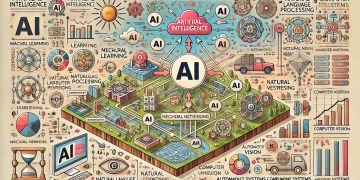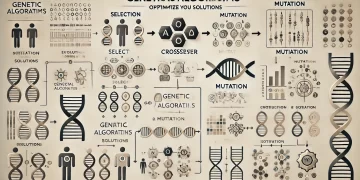Artificial Intelligence (AI) is playing a crucial role in revolutionizing mental health and wellness by improving diagnosis, therapy, and personalized treatment options. AI-driven solutions enhance accessibility to mental health care, provide real-time support, and empower individuals to take proactive steps in managing their well-being. This article explores various AI applications in mental health and wellness.
1. AI-Powered Mental Health Chatbots
AI-driven chatbots like Woebot and Wysa offer immediate psychological support by engaging users in conversations based on cognitive behavioral therapy (CBT). These chatbots help users manage stress, anxiety, and depression through guided exercises, mood tracking, and self-care recommendations.
2. AI in Early Mental Health Diagnosis
Machine learning algorithms analyze speech patterns, facial expressions, and behavioral data to detect early signs of mental disorders such as depression, bipolar disorder, and schizophrenia. AI-driven tools assist clinicians in diagnosing mental illnesses with higher accuracy and efficiency.
3. AI for Personalized Mental Health Treatment
AI tailors treatment plans by analyzing patient history, genetic predispositions, and response to previous therapies. AI-driven platforms recommend personalized intervention strategies, medication plans, and lifestyle adjustments for optimal mental health care.
4. AI in Suicide Prevention and Crisis Intervention
AI-powered algorithms monitor social media posts, text messages, and voice recordings to detect warning signs of suicidal thoughts. Organizations like the Crisis Text Line use AI to prioritize high-risk individuals and connect them with human counselors for immediate intervention.
5. AI for Stress and Anxiety Management
Wearable devices equipped with AI analyze physiological signals such as heart rate, sleep patterns, and stress levels. AI-powered wellness apps provide meditation guides, breathing exercises, and relaxation techniques to help individuals manage anxiety and improve overall well-being.
6. AI in Enhancing Therapy Sessions
AI-powered virtual reality (VR) environments help individuals confront phobias, PTSD, and social anxiety disorders in a controlled setting. AI also transcribes and analyzes therapy sessions to provide therapists with insights into patient progress and therapy effectiveness.
7. AI in Substance Abuse Recovery
AI-powered platforms assist in addiction recovery by monitoring behavior patterns and detecting relapse risks. AI-driven applications provide personalized counseling, motivational messaging, and community support networks to aid individuals in overcoming addiction.
8. AI in Workplace Mental Health Monitoring
AI-powered employee wellness platforms analyze work patterns, stress levels, and productivity data to detect early signs of burnout. Organizations use AI-driven insights to implement mental health programs, reduce workplace stress, and enhance employee well-being.
9. AI for Detecting and Managing PTSD in Veterans
AI-driven tools help veterans cope with post-traumatic stress disorder (PTSD) by analyzing biometric data, providing virtual counseling, and suggesting coping mechanisms. AI-enhanced therapies aid in trauma recovery and reintegration into society.
10. AI in Mental Health Research and Data Analysis
AI accelerates mental health research by analyzing vast datasets from clinical trials, social media trends, and electronic health records. AI-driven research helps identify new treatment methodologies, understand mental health patterns, and improve mental wellness strategies.
Conclusion
AI is transforming mental health and wellness by offering innovative solutions for early diagnosis, personalized treatment, and crisis intervention. AI-driven technologies enhance accessibility, reduce stigma, and empower individuals to manage their mental health effectively. As AI continues to evolve, its integration into mental health care will lead to improved patient outcomes and a more holistic approach to well-being.
References
- American Psychological Association (APA). (2023). “AI in Mental Health Diagnosis and Treatment.”
- World Health Organization (WHO). (2023). “The Role of AI in Mental Health and Suicide Prevention.”
- National Institute of Mental Health (NIMH). (2023). “AI-Powered Therapeutic Chatbots: An Emerging Trend.”
- MIT Technology Review. (2022). “Wearable AI and Its Impact on Stress Management.”
- Forbes. (2023). “AI in Workplace Mental Health: Enhancing Employee Well-being.”
- IEEE Spectrum. (2023). “AI and Virtual Reality in PTSD Treatment.”




































